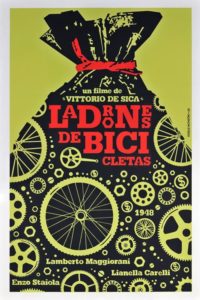"Fictions" by Jorge Luis Borges
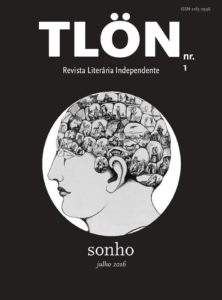 Tlön, Uqbar, Orbis Tertius
Tlön, Uqbar, Orbis TertiusOn the yellow leather back I read these curious words which were repeated on the title page: A First Encyclopaedia of Tlön. Vol. XI. Hlaer to Jangr. There was no indication of date or place. On the first page and on a leaf of silk paper that covered one of the color plates there was stamped a blue oval with this inscription: Orbis Tertius. Two years before I had discovered, in a volume of a certain pirated encyclopedia, a superficial description of a nonexistent country; now chance afforded me something more precious and arduous. Now I held in my hands a vast methodical fragment of an unknown planet's entire history, with its architecture and its playing cards, with the dread of its mythologies and the murmur of its languages, with its emperors and its seas, with its minerals and its birds and its fish, with its algebra and its fire, with its theological and metaphysical controversy. And all of it articulated, coherent, with no visible doctrinal intent or tone of parody.
In the "Eleventh Volume" which I have mentioned, there are allusions to preceding and succeeding volumes. In an article in the N. R. F. which is now classic, Néstor Ibarra has denied the existence of those companion volumes; Ezequiel Martínez Estrada and Drieu La Rochelle have refuted that doubt, perhaps victoriously. The fact is that up to now the most diligent inquiries have been fruitless. In vain we have upended the libraries of the two Americas and of Europe. Alfonso Reyes, tired of these subordinate sleuthing procedures, proposes that we should all undertake the task of reconstrucing the many and weighty tomes that are lacking: ex ungue leonem.
The popular magazines, with pardonable excess, have spread news of the zoology and topography of Tlön; I think its transparent tigers and towers of blood perhaps do not merit the continued attention of all men. I shall venture to request a few minutes to expound its concept of the universe.
Hume noted for all time that Berkeley's arguments did not admit the slightest refutation nor did they cause the slightest conviction. This dictum is entirely correct in its application to the earth, but entirely false in Tlön. The nations of this planet are congenitally idealist. Their language and the derivations of their language -- religion, letters, metaphysics -- all presuppose idealism. The world for them is not a concourse of objects in space; it is a heterogeneous series of independent acts. It is successive and temporal, not spatial.
Spinoza ascribes to his inexhaustible divinity the attributes of extension and thought; no one in Tlön would understand the juxtaposition of the first (which is typical only of certain states) and the second -- which is a perfect synonym of the cosmos. In other words, they do not conceive that the spatial persists in time. The perception of a cloud of smoke on the horizon and then of the burning field and then of the half-extinguished cigarette that produced the blaze is considered an example of association of ideas.
This monism or complete idealism invalidates all science. If we explain (or judge) a fact, we connect it with another; such linking, in Tlön, is a later state of the subject which cannot affect or illuminate the previous state. Every mental state is irreducible: the mere fact of naming it -- i.e., of classifying it -- implies a falsification.
The fact that every philosophy is by definition a dialectical game, a Philosophic des Ah Ob, has caused them to multiply. There is an abundance of incredible systems of pleasing design or sensational type. The metaphysicians of Tlön do not seek for the truth or even for verisimilitude, but rather for the astounding. They judge that metaphysics is a branch of fantastic literature. They know that a system is nothing more than the subordination of all aspects of the universe to any one such aspect. Even the phrase "all aspects" is rejectable, for it supposes the impossible addition of the present and of all past moments. Neither is it licit to use the plural "past moments," since it supposes another impossible operation. . . One of the schools of Tlön goes so far as to negate time: it reasons that the present is indefinite, that the future has no reality other than as a present hope, that the past has no reality other than as a present memory.*{Russell (The Analysis of Mind, 1921, page 159) supposes that the planet has been created a few minutes ago, furnished with a humanity that "remembers" an illusory past }. Another school declares that all time has already transpired and that our life is only the crepuscular and no doubt falsified and mutilated memory or reflection of an irrecoverable process. Another, that the history of the universe -- and in it our lives and the most tenuous detail of our lives -- is the scripture produced by a subordinate god in order to communicate with a demon. Another, that the universe is comparable to those cryptographs in which not all the symbols are valid and that only what happens every three hundred nights is true. Another, that while we sleep here, we are awake elsewhere and that in this way every man is two men.
Amongst the doctrines of Tlön, none has merited the scandalous reception accorded to materialism. Some thinkers have formulated it with less clarity than fervor, as one might put forth a paradox. In order to facilitate the comprehension of this inconceivable thesis, a heresiarch of the eleventh century*{A century, according to the duodecimal system, signifies a period of a hundred and forty-four years.} devised the sophism of the nine copper coins, whose scandalous renown is in Tlön equivalent to that of the Eleatic paradoxes. There are many versions of this "specious reasoning," which vary the number of coins and the number of discoveries; the following is the most common:
On Tuesday, X crosses a deserted road and loses nine copper coins. On Thursday, Y finds in the road four coins, somewhat rusted by Wednesday's rain. On Friday, Z discovers three coins in the road. On Friday morning, X finds two coins in the corridor of his house. The heresiarch would deduce from this story the reality -- i.e., the continuity -- of the nine coins which were recovered. It is absurd (he affirmed) to imagine that four of the coins have not existed between Tuesday and Thursday, three between Tuesday and Friday afternoon, two between Tuesday and Friday morning. It is logical to think that they have existed -- at least in some secret way, hidden from the comprehension of men -- at every moment of those three periods.
The language of Tlön resists the formulation of this paradox; most people did not even understand it. The defenders of common sense at first did no more than negate the veracity of the anecdote. They repeated that it was a verbal fallacy, based on the rash application of two neologisms not authorized by usage and alien to all rigorous thought: the verbs "find" and "lose," which beg the question, because they presuppose the identity of the first and of the last nine coins. They recalled that all nouns (man, coin, Thursday, Wednesday,
rain) have only a metaphorical value. They denounced the treacherous circumstance "somewhat rusted by Wednesday's rain," which presupposes what is trying to be demonstrated: the persistence of the four coins from Tuesday to Thursday. They explained that equality is one thing and identity another, and formulated a kind of reductio ad absurdum: the hypothetical case of nine men who on nine successive nights suffer a severe pain. Would it not be ridiculous -- they questioned -- to pretend that this pain is one and the same?*{Today, one of the churches of Tlön Platonically maintains that a certain pain, a certain greenish tint of yellow, a certain temperature, a certain sound, are the only reality. All men, in the vertiginous moment of coitus, are the same man. All men who repeat a line from Shakespeare are William Shakespeare.} They said that the heresiarch was prompted only by the blasphemous intention of attributing the divine category of being to some simple coins and that at times he negated plurality and at other times did not. They argued: if equality implies identity, one would also have to admit that the nine coins are one.
Unbelievably, these refutations were not definitive. A hundred years after the problem was stated, a thinker no less brilliant than the heresiarch but of orthodox tradition formulated a very daring hypothesis. This happy conjecture affirmed that there is only one subject, that this indivisible subject is every being in the universe and that these beings are the organs and masks of the divinity. X is Y and is Z. Z discovers three coins because he remembers that X lost them; X finds two in the corridor because he remembers that the others have been found. . .
The basis of visual geometry is the surface, not the point. This geometry disregards parallel lines and declares that man in his movement modifies the forms which surround him. They maintain that the operation of counting modifies quantities and converts them from indefinite into definite sums. The fact that several individuals who count the same quantity should obtain the same result is, for the psychologists, an example of association of ideas or of a good exercise of memory.
In literary practices the idea of a single subject is also all- powerful. It is uncommon for books to be signed. The concept of plagiarism does not exist: it has been established that all works are the creation of one author, who is atemporal and anonymous. The critics often invent authors: they select two dissimilar works -- the Tao Te Ching and the 1001 Nights, say -- attribute them to the same writer and then determine most scrupulously the psychology of this interesting homme de lettres. . .
Centuries and centuries of idealism have not failed to influence reality. In the most ancient regions of Tlön, the duplication of lost objects is not infrequent. Two persons look for a pencil; the first finds it and says nothing; the second finds a second pencil, no less real, but closer to his expectations. These secondary objects are called hrönir and are, though awkward in form, somewhat longer. Until recently, the hrönir were the accidental products of distraction and forgetfulness. It seems unbelievable that their methodical production dates back scarcely a hundred years, but this is what the Eleventh Volume tells us. The first efforts were unsuccessful. However, the modus operandi merits description. The director of one of the state prisons told his inmates that there were certain tombs in an ancient river bed and promised freedom to whoever might make an important discovery. During the months preceding the excavation the inmates were shown photographs of what they were to find. This first effort proved that expectation and anxiety can be inhibitory; a week's work with pick and shovel did not manage to unearth anything in the way of a hrön except a rusty wheel of a period posterior to the experiment. But this was kept in secret and the process was repeated later in four schools. In three of them the failure was almost complete; in the fourth (whose director died accidentally during the first excavations) the students unearthed -- or produced -- a gold mask, an archaic sword, two or three clay urns and the moldy and mutilated torso of a king whose chest bore an inscription which it has not yet been possible to decipher. Thus was discovered the unreliability of witnesses who knew of the experimental nature of the search. . . Mass investigations produce contradictory objects; now individual and almost improvised jobs are preferred. The methodical fabrication of hrönir (says the Eleventh Volume) has performed prodigious services for archaeologists. It has made possible the interrogation and even the modification of the past, which is now no less plastic and docile than the future. Curiously, the hrönir of second and third degree -- the hrönir derived from another hrön, those derived from the hrön of a hrön -- exaggerate the aberrations of the initial one; those of fifth degree are almost uniform; those of ninth degree become confused with those of the second; in those of the eleventh there is a purity of line not found in the original. The process is cyclical: the hrön of twelfth degree begins to fall off in quality. Stranger and more pure than any hrön is, at times, the ur: the object produced through suggestion, educed by hope. The great golden mask I have mentioned is an illustrious example.
Things become duplicated in Tlön; they also tend to become effaced and lose their details when they are forgotten. A classic example is the doorway which survived so long as it was visited by a beggar and disappeared at his death. At times some birds, a horse, have saved the ruins of an amphitheater.
The Lottery in Babylon
Everyone knows that the people of Babylon are fond of logic and even of symmetry. It was illogical for the lucky numbers to be computed in round coins and the unlucky ones in days and nights of imprisonment. Some moralists reasoned that the possession of money does not always determine happiness and that other forms of happiness are perhaps more direct. Another concern swept the quarters of the poorer classes. The members of the college of priests multiplied their stakes and enjoyed all the vicissitudes of terror and hope; the poor (with reasonable or unavoidable envy) knew that they were excluded from that notoriously delicious rhythm. The just desire that all, rich and poor, should participate equally in the lottery, inspired an indignant agitation.
A slave stole a crimson ticket, which in the drawing credited him with the burning of his tongue. The legal code fixed that same penalty for the one who stole a ticket.
There were disturbances, there were lamentable drawings of blood, but the masses of Babylon finally imposed their will against the opposition of the rich. The people achieved amply its generous purposes. In the first place, it caused the Company to accept total power. (That unification was necessary, given the vastness and complexity of the new operations.) In the second place, it made the lottery secret, free and general. The mercenary sale of chances was abolished. Once initiated in the mysteries of Baal, every free man automatically participated in the sacred drawings, which took place in the labyrinths of the god every sixty nights and which determined his destiny until the next drawing. The consequences were incalculable. A fortunate play could bring about his promotion to the council of wise men or the imprisonment of an enemy (public or private) or finding, in the peaceful darkness of his room, the woman who begins to excite him and whom he never expected to see again. A bad play: mutilation, different kinds of infamy, death. At times one single fact -- the vulgar murder of C, the mysterious apotheosis of B -- was the happy solution of thirty or forty drawings. To combine the plays was difficult, but one must remember that the individuals of the Company were (and are) omnipotent and astute. In many cases the knowledge that certain happinesses were the simple product of chance would have diminished their virtue. To avoid that obstacle, the agents of the Company made use of the power of suggestion and magic. Their steps, their maneuverings, were secret. To find out about the intimate hopes and terrors of each individual, they had astrologists and spies.
The lottery is an interpolation of chance in the order of the world and that to accept errors is not to contradict chance: it is to corroborate it.
From some one of them the following conjecture was born: If the lottery is an intensification of chance, a periodical infusion of chaos in the cosmos, would it not be right for chance to intervene in all stages of the drawing and not in one alone? Is it not ridiculous for chance to dictate someone's death and have the circumstances of that death -- secrecy, publicity, the fixed time of an hour or a century -- not subject to chance? These just scruples finally caused a considerable reform, whose complexities (aggravated by centuries' practice) only a few specialists understand, but which I shall try to summarize, at least in a symbolic way.
Let us imagine a first drawing, which decrees the death of a man. For its fulfillment one proceeds to another drawing, which proposes (let us say) nine possible executors. Of these executors, four can initiate a third drawing which will tell the name of the executioner, two can replace the adverse order with a fortunate one (finding a treasure, let us say), another will intensify the death penalty (that is, will make it infamous or enrich it with tortures), others can refuse to fulfill it. This is the symbolic scheme. In reality the number of drawings is infinite. No decision is final, all branch into others.
There are also impersonal drawings, with an indefinite purpose. One decrees that a sapphire of Taprobana be thrown into the waters of the Euphrates; another, that a bird be released from the roof of a tower; another, that each century there be withdrawn (or added) a grain of sand from the innumerable ones on the beach. The consequences are, at times, terrible. Under the beneficent influence of the Company, our customs are saturated with chance.
Furthermore, there is nothing so contaminated with fiction as the history of the Company. A paleographic document, exhumed in a temple, can be the result of yesterday's lottery or of an age-old lottery. No book is published without some discrepancy in each one of the copies. Scribes take a secret oath to omit, to interpolate, to change. The indirect lie is also cultivated.
The Company, with divine modesty, avoids all publicity. Its agents, as is natural, are secret. The orders which it issues continually (perhaps incessantly) do not differ from those lavished by impostors. Moreover, who can brag about being a mere impostor? The drunkard who improvises an absurd order, the dreamer who awakens suddenly and strangles the woman who sleeps at his side, do they not execute, perhaps, a secret decision of the Company? That silent functioning, comparable to God's, gives rise to all sorts of conjectures. One abominably insinuates that the Company has not existed for centuries and that the sacred disorder of our lives is purely hereditary, traditional. Another judges it eternal and teaches that it will last until the last night, when the last god annihilates the world. Another declares that the Company is omnipotent, but that it only has influence in tiny things: in a bird's call, in the shadings of rust and of dust, in the half dreams of dawn. Another, in the words of masked heresiarchs, that it has never existed and will not exist. Another, no less vile, reasons that it is indifferent to affirm or deny the reality of the shadowy corporation, because Babylon is nothing else than an infinite game of chance.
Pierre Menard, Author of the Quixote
Those who have insinuated that Menard dedicated his life to writing a contemporary Quixote calumniate his illustrious memory. He did not want to compose another Quixote -- which is easy -- but the Quixote itself. Needless to say, he never contemplated a mechanical transcription of the original; he did not propose to copy it. His admirable intention was to produce a few pages which would coincide -- word for word and line for line -- with those of Miguel de Cervantes.
The first method he conceived was relatively simple. Know Spanish well, recover the Catholic faith, fight against the Moors or the Turk, forget the history of Europe between the years 1602 and 1918, be Miguel de Cervantes. Pierre Menard studied this procedure (I know he attained a fairly accurate command of seventeenth-century Spanish) but discarded it as too easy. Rather as impossible! my reader will say. Granted, but the undertaking was impossible from the very beginning and of all the impossible ways of carrying it out, this was the least interesting. To be, in the twentieth century, a popular novelist of the seventeenth seemed to him a diminution. To be, in some way, Cervantes and reach the Quixote seemed less arduous to him -- and, consequently, less interesting -- than to go on being Pierre Menard and reach the Quixote through the experiences of Pierre Menard.
But why precisely the Quixote? our reader will ask. Such a preference, in a Spaniard, would not have been inexplicable; but it is, no doubt, in a Symbolist from Nîmes, essentially a devote of Poe, who engendered Baudelaire, who engendered Mallarmé, who engendered Valéry, who engendered Edmond Teste. The aforementioned letter illuminates this point. "The Quixote," clarifies Menard, "interests me deeply, but it does not seem -- how shall I say it? -- inevitable. I cannot imagine the universe without Edgar Allan Poe's exclamation: Ah, bear in mind this garden was enchanted! or without the Bateau ivre or the Ancient Mariner, but I am quite capable of imagining it without the Quixote. (I speak, naturally, of my personal capacity and not of those works' historical resonance.) The Quixote is a contingent book; the Quixote is unnecessary.
I have taken on the mysterious duty of reconstructing literally his spontaneous work. My solitary game is governed by two polar laws. The first permits me to essay variations of a formal or psychological type; the second obliges me to sacrifice these variations to the "original" text and reason out this annihilation in an irrefutable manner. . .
Cervantes' text and Menard's are verbally identical, but the second is almost infinitely richer. (More ambiguous, his detractors will say, but ambiguity is richness.).
It is a revelation to compare Menard's Don Quixote with Cervantes'. The latter, for example, wrote (part one, chapter nine):
. . . truth, whose mother is history, rival of time, depository of deeds, witness of the past, exemplar and adviser to the present, and the future's counselor.
Written in the seventeeth century, written by the "lay genius" Cervantes, this enumeration is a mere rhetorical praise of history. Menard, on the other hand, writes:
. . . truth, whose mother is history, rival of time, depository of deeds, witness of the past, exemplar and adviser to the present, and the future's counselor.
History, the mother of truth: the idea is astounding. Menard, a contemporary of William James, does not define history as an inquiry into reality but as its origin. Historical truth, for him, is not what has happened; it is what we judge to have happened. The final phrases --
exemplar and adviser to the present, and the future's counselor -- are brazenly pragmatic.
The contrast in style is also vivid. The archaic style of Menard -- quite foreign, after all -- suffers from a certain affectation. Not so that of his forerunner, who handles with ease the current Spanish of his time.
Fame is a form of incomprehension, perhaps the worst. Menard decided to anticipate the vanity awaiting all man's efforts; he set himself to an undertaking which was exceedingly complex and, from the very beginning, futile. He dedicated his scruples and his sleepless nights to repeating an already extant book in an alien tongue. He multiplied draft upon draft, revised tenaciously and tore up thousands of manuscript pages.*
Every man should be capable of all ideas and I understand that in the future this will be the case."
Menard (perhaps without wanting to) has enriched, by means of a new technique, the halting and rudimentary art of reading: this new technique is that of the deliberate anachronism and the erroneous attribution. This technique, whose applications are infinite, prompts us to go through the Odyssey as if it were posterior to the Aeneid and the book Le jardin du Centaure of Madame Henri Bachelier as if it were by Madame Henri Bachelier.
 The Library of Babel
The Library of Babel
I know of an uncouth region whose librarians repudiate the vain and superstitious custom of finding a meaning in books and equate it with that of finding a meaning in dreams or in the chaotic lines of one's palm. . . They admit that the inventors of this writing imitated the twenty-five natural symbols, but maintain that this application is accidental and that the books signify nothing in themselves. This dictum, we shall see, is not entirely fallacious.
For a long time it was believed that these impenetrable books corresponded to past or remote languages. It is true that the most ancient men, the first librarians, used a language quite different from the one we now speak; it is true that a few miles to the right the tongue is dialectal and that ninety floors farther up, it is incomprehensible. All this, I repeat, is true, but four hundred and ten pages of inalterable MCV's cannot correspond to any language, no matter how dialectal or rudimentary it may be. Some insinuated that each letter could influence the following one and that the value of MCV in the third line of page 71 was not the one the same series may have in another position on another page, but this vague thesis did not prevail.
This thinker observed that all the books, no matter how diverse they might be, are made up of the same elements: the space, the period, the comma, the twenty-two letters of the alphabet. He also alleged a fact which travelers have confirmed: In the vast Library there are no two identical books. From these two incontrovertible premises he deduced that the Library is total and that its shelves register all the possible combinations of the twenty-odd orthographical symbols (a number which, though extremely vast, is not infinite): in other words, all that it is given to express, in all languages. Everything: the minutely detailed history of the future, the archangels' autobiographies, the faithful catalogue of the Library, thousands and thousands of false catalogues, the demonstration of the fallacy of those catalogues, the demonstration of the fallacy of the true catalogue, the Gnostic gospel of Basilides, the commentary on that gospel, the commentary on the commentary on that gospel, the true story of your death, the translation of every book in all languages, the interpolations of every book in all books.
One: the Library is so enormous that any reduction of human origin is infinitesimal. The other: every copy is unique, irreplaceable, but (since the Library is total) there are always several hundred thousand imperfect facsimiles: works which differ only in a letter or a comma.
No one can articulate a syllable which is not filled with tenderness and fear, which is not, in one of these languages, the powerful name of a god. To speak is to fall into tautology. This wordy and useless epistle already exists in one of the thirty volumes of the five shelves of one of the innumerable hexagons -- and its refutation as well.
I have just written the word "infinite." I have not interpolated this adjective out of rhetorical habit; I say that it is not illogical to think that the world is infinite. Those who judge it to be limited postulate that in remote places the corridors and stairways and hexagons can conceivably come to an end -- which is absurd. Those who imagine it to be without limit forget that the possible number of books does have such a limit. I venture to suggest this solution to the ancient problem: The Library is unlimited and cyclical. If an eternal traveler were to cross it in any direction, after centuries he would see that the same volumes were repeated in the same disorder (which, thus repeated, would be an order: the Order). My solitude is gladdened by this elegant hope*{Letizia Álvarez de Toledo has observed that this vast Library is useless: rigorously speaking, a single volume would be sufficient, a volume of ordinary format, printed in nine or ten point type, containing an infinite number of infinitely thin leaves. (In the early seventeenth century, Cavalieri said that all solid bodies are the superimposition of an infinite number of planes.) The handling of this silky vade mecum would not be convenient: each apparent page would unfold into other analogous ones; the inconceivable middle page would have no reverse.}.
The Immortal
I wandered several days without finding water, or one enormous day multiplied by the sun, my thirst or my fear of thirst. I left the route to the judgment of my horse. In the dawn, the distance bristled up into pyramids and towers. Intolerably, I dreamt of an exiguous and nitid labyrinth: in the center was a water jar; my hands almost touched it, my eyes could see it, but so intricate and perplexed were the curves that I knew I would die before reaching it.
At the foot of the mountain, an impure stream spread noiselessly, clogged with debris and sand; on the opposite bank (beneath the last sun or beneath the first) shone the evident City of the Immortals. I saw walls, arches, façades and fora: the base was a stone plateau.
I have said that the City was founded on a stone plateau. This plateau, comparable to a high cliff, was no less arduous than the walls. In vain I fatigued myself: the black base did not disclose the slightest irregularity, the invariable walls seemed not to admit a single door. The force of the sun obliged me to seek refuge in a cave; in the rear was a pit, in the pit a stairway which sank down abysmally into the darkness below. I went down; through a chaos of sordid galleries I reached a vast circular chamber, scarcely visible. There were nine doors in this cellar; eight led to a labyrinth that treacherously returned to the same chamber; the ninth (through another labyrinth) led to a second circular chamber equal to the first. I do not know the total number of these chambers; my misfortune and anxiety multiplied them. The silence was hostile and almost perfect; there was no sound in this deep stone network save that of a subterranean wind, whose cause I did not discover; noiselessly, tiny streams of rusty water disappeared beween the crevices. Horribly, I became habituated to this doubtful world; I found it incredible that there could be anything but cellars with nine doors and long branched-out cellars;
Rather than by any other trait of this incredible monument, I was held by the extreme age of its fabrication. I felt that it was older than mankind, than the earth. This manifest antiquity (though in some way terrible to the eyes) seemed to me in keeping with the work of immortal builders. At first cautiously, later indifferently, at last desperately, I wandered up the stairs and along the pavements of the inextricable palace. (Afterwards I learned that the width and height of the steps were not constant, a fact which made me understand the singular fatigue they produced.)
"This City" (I thought) "is so horrible that its mere existence and perdurance, though in the midst of a secret desert, contaminates the past and the future and in some way even jeopardizes the stars. As long as it lasts, no one in the world can be strong or happy." I do not want to describe it; a chaos of heterogeneous words, the body of a tiger or a bull in which teeth, organs and heads monstrously pullulate in mutual conjunction and hatred can (perhaps) be approximate images.
To be immortal is commonplace; except for man, all creatures are immortal, for they are ignorant of death; what is divine, terrible, incomprehensible, is to know that one is immortal. I have noted that, in spite of religions, this conviction is very rare. Israelites, Christians and Moslems profess immortality, but the veneration they render this world proves they believe only in it, since they destine all other worlds, in infinite number, to be its reward or punishment. The wheel of certain Hindustani religions seems more reasonable to me; on this wheel, which has neither beginning nor end, each life is the effect of the preceding and engenders the following, but none determines the totality. . . Indoctrinated by a practice of centuries, the republic of immortal men had attained the perfection of tolerance and almost that of indifference. They knew that in an infinite period of time, all things happen to all men. Because of his past or future virtues, every man is worthy of all goodness, but also of all perversity, because of his infamy in the past or future. Thus, just as in games of chance the odd and even numbers tend toward equilibrium, so also wit and stolidity cancel out and correct each other and perhaps the rustic Poem of the Cid is the counterbalance demanded by one single epithet from the Eclogues or by an epigram of Heraclitus. The most fleeting thought obeys an invisible design and can crown, or inaugurate, a secret form. I know of those who have done evil so that in future centuries good would result, or would have resulted in those already past. . . Seen in this manner, all our acts are just, but they are also indifferent. There are no moral or intellectual merits. Homer composed the Odyssey; if we postulate an infinite period of time, with infinite circumstances and changes, the impossible thing is not to compose the Odyssey, at least once. No one is anyone, one single immortal man is all men.
Among the corollaries of the doctrine that there is nothing lacking compensation in something else, there is one whose theoretical importance is very small, but which induced us, toward the end or the beginning of the tenth century, to disperse ourselves over the face of the earth. It can be stated in these words: "There exists a river whose waters grant immortality; in some region there must be another river whose waters remove it." The number of rivers is not infinite; an immortal traveler who traverses the world will finally, some day, have drunk from all of them. We proposed to discover that river.
Death (or its allusion) makes men precious and pathetic. They are moving because of their phantom condition; every act they execute may be their last; there is not a face that is not on the verge of dissolving like a face in a dream. Everything among the mortals has the value of the irretrievable and the perilous. Among the Immortals, on the other hand, every act (and every thought) is the echo of others that preceded it in the past, with no visible beginning, or the faithful presage of others that in the future will repeat it to a vertiginous degree. There is nothing that is not as if lost in a maze of indefatigable mirrors. Nothing can happen only once, nothing is preciously precarious.
I went ashore; I recalled other very ancient mornings, also facing the Red Sea, when I was a tribune of Rome and fever and magic and idleness consumed the soldiers. On the outskirts of the city I saw a spring of clear water; I tasted it, prompted by habit. When I came up the bank, a spiny bush lacerated the back of my hand. The unusual pain seemed very acute to me. Incredulous, speechless and happy, I contemplated the precious formation of a slow drop of blood. Once again I am mortal, I repeated to myself, once again I am like all men.
The story I have narrated seems unreal because in it are mixed the events of two different men. In the first chapter, the horseman wants to know the name of the river bathing the walls of Thebes; Flaminius Rufus, who before has applied to the city the epithet of Hekatompylos, says that the river is the Egypt; none of these locutions is proper to him but rather to Homer, who makes express mention in the Iliad of Thebes Hekatompylos and who in the Odyssey, by way of Proteus and Ulysses, invariably says Egypt for Nile. In the second chapter, the Roman, upon drinking the immortal water, utters some words in Greek; these words are Homeric and may be sought at the end of the famous catalogue of the ships. Later, in the vertiginous palace, he speaks of "a reprobation which was almost remorse"; these words belong to Homer, who had projected that horror. Such anomalies disquieted me; others, of an aesthetic order, permitted me to discover the truth. They are contained in the last chapter; there it is written that I fought at Stamford Bridge, that I transcribed in Bulaq the travels of Sinbad the Sailor and that I subscribed in Aberdeen to the English Iliad of Pope. One reads, inter alia: "In Bikaner I professed the science of astrology and also in Bohemia." None of these testimonies is false; what is significant is that they were stressed. The first of them seems proper to a warrior, but later one notes that the narrator does not linger over warlike deeds, but does over the fates of men. Those which follow are even more curious. A dark elemental reason obliged me to record them; I did it because I knew they were pathetic. Spoken by the Roman Flaminius Rufus, they are not. They are, spoken by Homer; it is strange that the latter should copy in the thirteenth century the adventures of Sinbad, another Ulysses, and should discover after many centuries, in a northern kingdom and a barbarous tongue, the forms of his Iliad. As for the sentence containing the name of Bikaner, one can see that it was fabricated by a man of letters, desirous (as was the author of the ship catalogue) of exhibiting splendid words.*{Ernesto Sabato suggests that the "Giambattista" who discussed the formation of the Iliad with the antique dealer Cartaphilus is Giambattista Vico; this Italian defended the idea that Homer is a symbolic character, after the manner of Pluto or Achilles.}
When the end draws near, there no longer remain any remembered images; only words remain. It is not strange that time should have confused the words that once represented me with those that were symbols of the fate of he who accompanied me for so many centuries. I have been Homer; shortly, I shall be No One, like Ulysses; shortly, I shall be all men; I shall be dead.
 Funes the Memorious
Funes the Memorious
A circle drawn on a blackboard, a right triangle, a lozenge -- all these are forms we can fully and intuitively grasp; Ireneo could do the same with the stormy mane of a pony, with a herd of cattle on a hill, with the changing fire and its innumerable ashes, with the many faces of a dead man throughout a long wake. I don't know how many stars he could see in the sky.
He told me that in 1886 he had invented an original system of numbering and that in a very few days he had gone beyond the twenty- four-thousand mark. He had not written it down, since anything he thought of once would never be lost to him. His first stimulus was, I think, his discomfort at the fact that the famous thirty-three gauchos of Uruguayan history should require two signs and two words, in place of a single word and a single sign. He then applied this absurd principle to the other numbers. In place of seven thousand thirteen, he would say (for example) Máximo Pérez; in place of seven thousand fourteen, The Railroad; other numbers were Luis Melián Lafinur, Olimar, sulphur, the reins, the whale, the gas, the caldron, Napoleon, Agustín de Vedia. In place of five hundred, he would say nine. Each word had a particular sign, a kind of mark; the last in the series were very complicated. . . I tried to explain to him that this rhapsody of incoherent terms was precisely the opposite of a system of numbers. I told him that saying 365 meant saying three hundreds, six tens, five ones, an analysis which is not found in the "numbers" The Negro Timoteo or meat blanket. Funes did not understand me or refused to understand me.
Not only was it difficult for him to comprehend that the generic symbol dog embraces so many unlike individuals of diverse size and form; it bothered him that the dog at three fourteen (seen from the side) should have the same name as the dog at three fifteen (seen from the front). His own face in the mirror, his own hands, surprised him every time he saw them.
With no effort, he had learned English, French, Portuguese and Latin. I suspect, however, that he was not very capable of thought. To think is to forget differences, generalize, make abstractions. In the teeming world of Funes, there were only details, almost immediate in their presence.
The wary light of dawn entered the earthen patio.
Then I saw the face belonging to the voice that had spoken all night long. Ireneo was nineteen years old; he had been born in 1868; he seemed to me as monumental as bronze, more ancient than Egypt, older than the prophecies and the pyramids. I thought that each of my words (that each of my movements) would persist in his implacable memory; I was benumbed by the fear of multiplying useless gestures.
Ireneo Funes died in 1889, of congestion of the lungs.
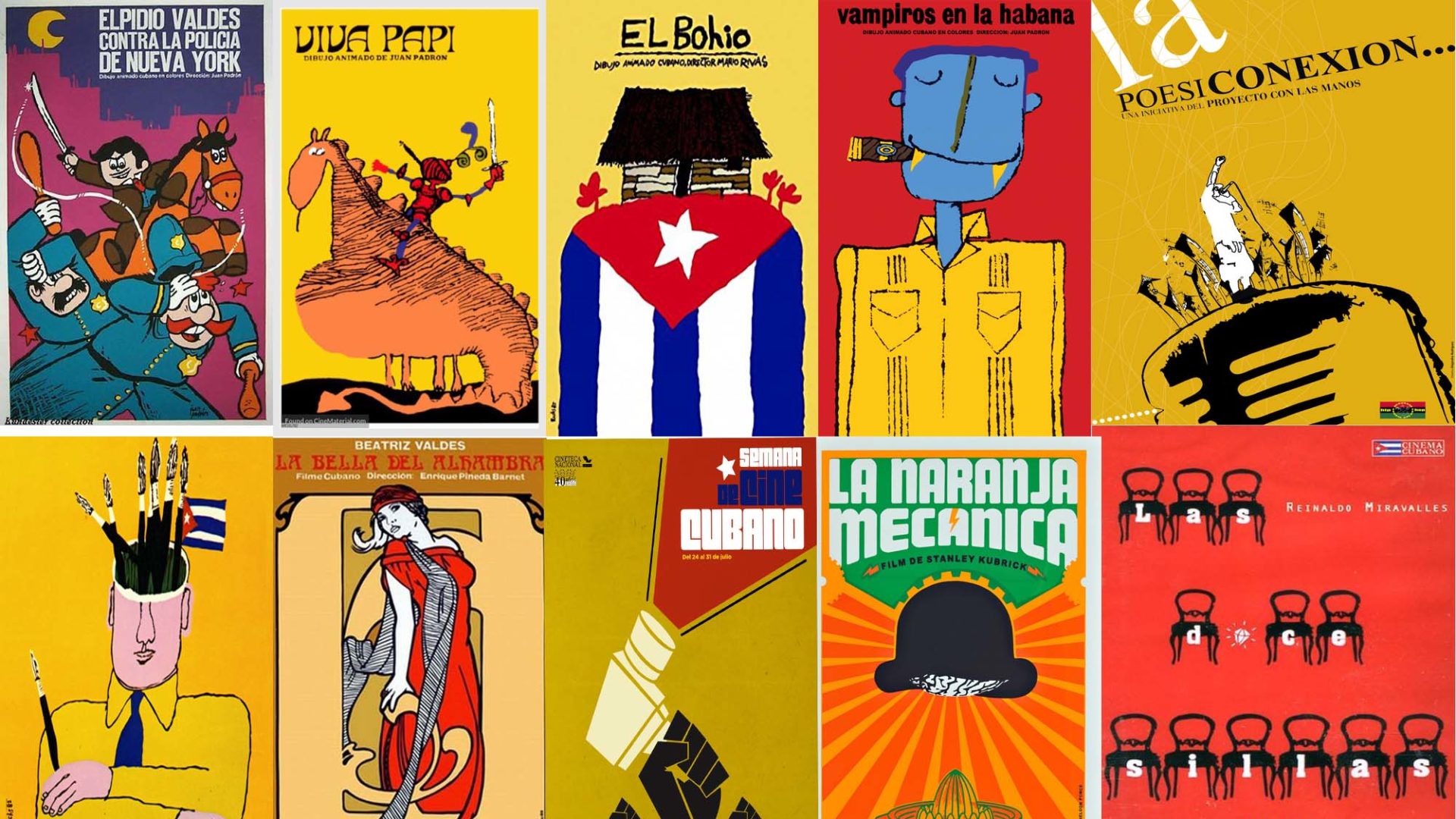
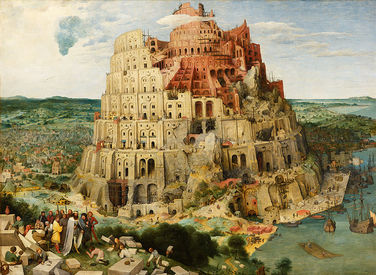
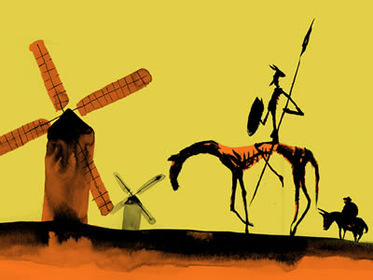
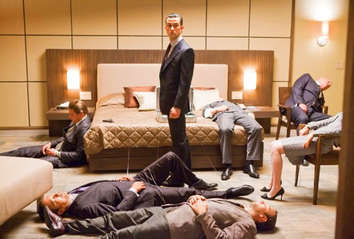
 The Hit (Frears, 1984)
The Hit (Frears, 1984) Frankenstein (1931, dir. James Whale)
Frankenstein (1931, dir. James Whale) Ashes and Diamonds (1958, Andrzej Wajda)
Ashes and Diamonds (1958, Andrzej Wajda)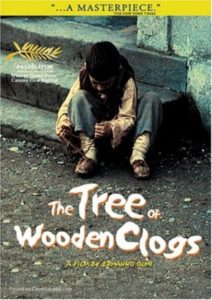 The Tree of Wooden Clogs(1978, E.Olmi)
The Tree of Wooden Clogs(1978, E.Olmi) 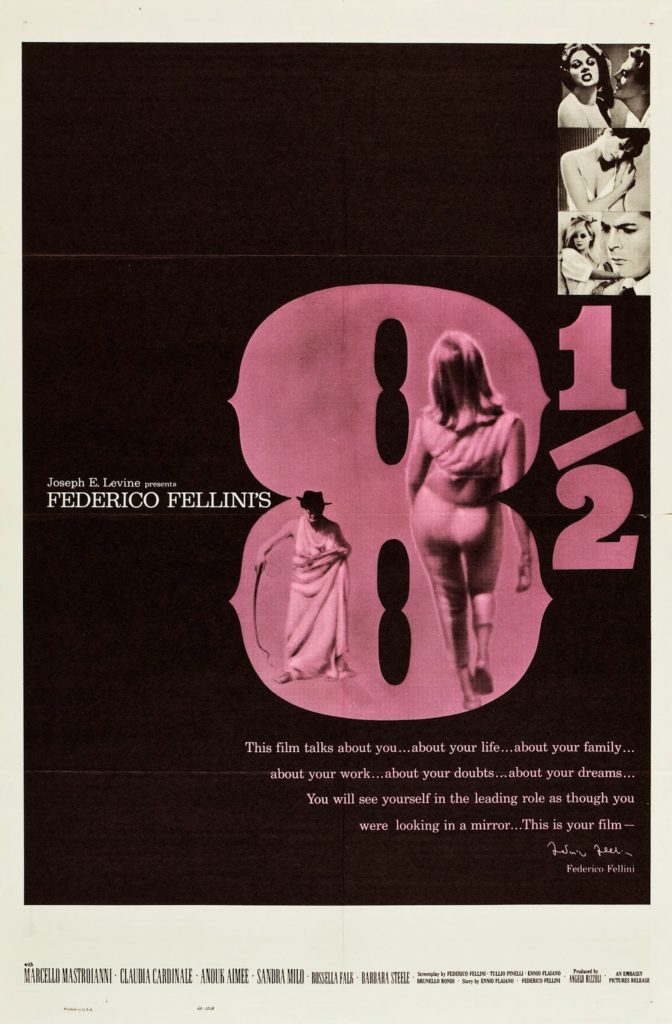 8 1/2 (1963, dir. Federico Fellini)
8 1/2 (1963, dir. Federico Fellini)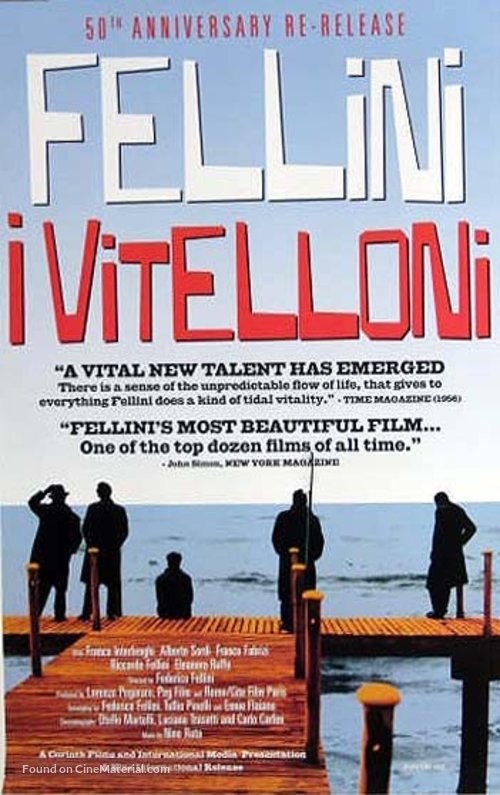 1. I Vitelloni (Fellini, 1953)
1. I Vitelloni (Fellini, 1953)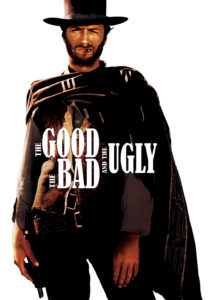 The Good, the Bad and the Ugly (1966, dir. Sergio Leone)
The Good, the Bad and the Ugly (1966, dir. Sergio Leone)